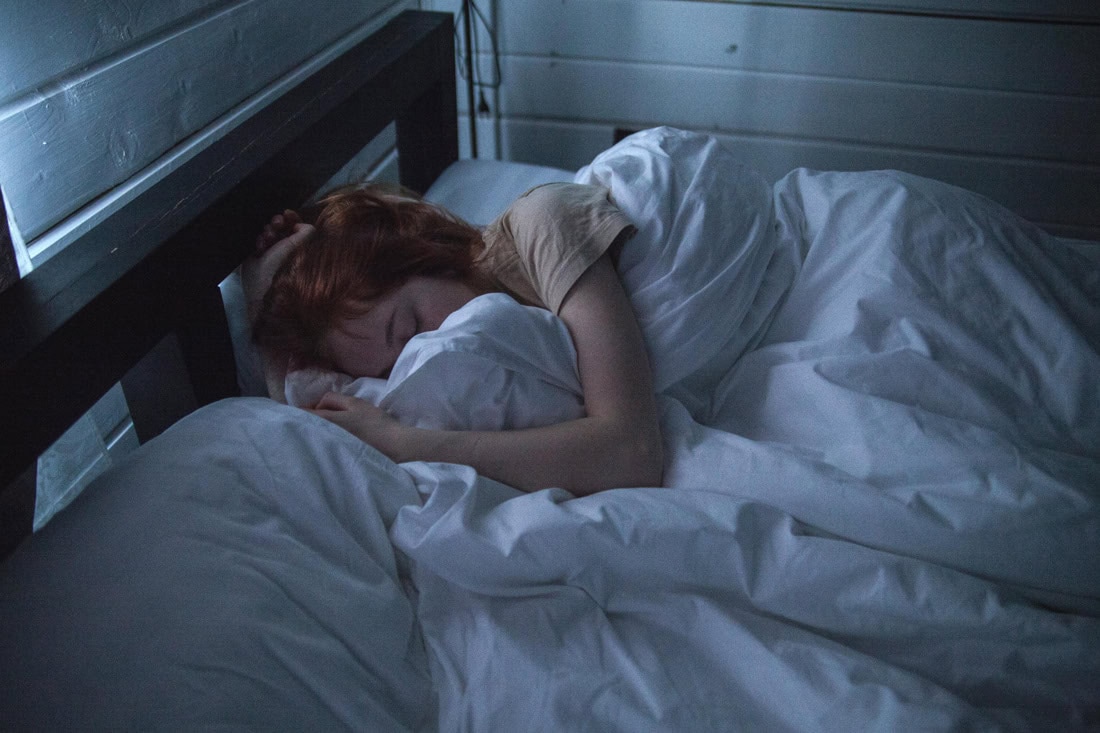Why Can’t I Sleep? Understanding the Hidden Causes of Sleep Disorders
If you’ve ever stared at the ceiling at 2 AM wondering why your brain suddenly decided it’s the perfect time to replay every awkward conversation you’ve ever had, you’re not alone.
Sleep problems affect millions of people every night, from struggling to drift off, to waking up too early, to feeling utterly exhausted despite spending eight hours in bed.
As a solution focused hypnotherapist based in Nottingham, I meet so many clients who come to me saying, “I just can’t sleep, and I don’t know why.”
The truth is, there’s rarely one single cause. Sleep disorders often hide beneath layers of stress, habits, hormones, and even subconscious patterns that quietly sabotage your rest.
So, let’s peel back the layers and uncover what might really be keeping you awake and more importantly, what you can do about it.
1. Stress and Anxiety – The Rest Thieves
Stress is the number one culprit behind most sleep issues. When your brain perceives danger, even if it’s just an overflowing inbox or tomorrow’s presentation, it releases cortisol, the stress hormone.
Cortisol keeps your body alert, tense, and ready to “fight or flight” which is the exact opposite of what you need for restful sleep.
In modern life, this stress response is switched on far too often. Even lying in bed, your mind might race with “what-ifs” and “to-dos” preventing the natural transition into relaxation. Over time, this can develop into chronic insomnia, where your brain learns that bedtime equals worry time.
This is where solution-focused hypnotherapy helps. In my Nottingham practice, I work with clients to calm that overactive mind by guiding them into deep, trance-like relaxation. Together, we retrain the brain to associate bedtime with safety and calmness, not stress or anxiety. When your nervous system learns to downshift, sleep follows naturally.
Top Tip: Create a simple “brain dump” routine before bed. Write down every worry or task, then close the notebook and tell yourself, “I’ll deal with that tomorrow.” Your brain loves closure.
Interesting Fact: Studies show that people who journal their thoughts before bed fall asleep faster and experience fewer awakenings.
2. Poor Sleep Habits – The Unseen Saboteurs
We live in a world that constantly stimulates us, blue light screens, social media scrolling, late-night Netflix binges. These habits disrupt the body’s natural circadian rhythm, the 24-hour clock that tells us when to feel awake or sleepy.
For instance, the blue light from your phone suppresses melatonin, the hormone that helps you fall asleep. Combine that with caffeine after 3pm, a warm bedroom, or inconsistent sleep times, and your body simply doesn’t know when it’s supposed to switch off.
In solution-focused hypnotherapy, I often help clients identify the small lifestyle patterns that make a big difference. Something as simple as a consistent bedtime or keeping your phone out of the bedroom can retrain your body clock within weeks.
Top Tip: Try a “digital sunset.” Turn off all screens at least 60 minutes before bed. Replace scrolling with stretching, journaling, or soft music.
Interesting Fact: Exposure to blue light before bed can reduce melatonin production by as much as 23%.
3. Overthinking and the Busy Mind
If you’re a chronic overthinker, you know exactly how it feels – your head hits the pillow and suddenly it’s a mental marathon. You replay conversations, make plans, imagine scenarios… and before you know it, it’s 3am.
This kind of rumination activates the brain’s analytical network, the same one you use to problem-solve during the day. Unfortunately, that network doesn’t have an “off switch”.
Solution-focused hypnotherapy helps by shifting your brainwaves into a calmer, more reflective state, allowing you to let go of conscious control and ease into natural rest.
In Nottingham, I often teach clients a technique called “positive reframing.” Instead of trying to “force” sleep, we gently redirect the mind toward gratitude, positive images, or solutions rather than problems. This not only helps you fall asleep faster but improves the overall quality of your rest.
Eniko’s Top Tip: When your mind won’t stop, focus on gentle visualisation. Picture yourself floating peacefully on a calm lake or lying on warm sand. Keep your breathing slow and steady — your body will follow.
Interesting Fact: The brain cannot distinguish between vividly imagined and real experiences. Guided imagery can trigger real relaxation responses.
4. Hormonal Changes and the Sleep Connection
Hormones play a huge role in how well we sleep. For women, fluctuations during menstruation, pregnancy, and menopause can lead to sleepless nights, hot flashes, and restless energy. For men, low testosterone or thyroid imbalances can also disrupt deep sleep.
Cortisol, melatonin, and oestrogen all interact with your circadian rhythm. When they fall out of sync, your sleep suffers. For example, during menopause, oestrogen levels drop, affecting serotonin and body temperature regulation. No wonder night sweats are so common!
Hypnotherapy can’t replace hormones, but it can help regulate the stress response and support the mind-body connection. Many of my clients in Nottingham find that after a few sessions, their sleep stabilises because their bodies are no longer in a constant state of stress. When the mind feels calm, the hormones can start to find balance too.
Top Tip: Support your body’s rhythm. Go to bed and wake up at the same time every day, even on weekends. Your hormones love consistency.
Interesting Fact: After menopause, women are up to 3.5 times more likely to experience insomnia.
5. Depression, Low Mood and Sleep Disturbances
Depression and sleep problems have a two-way relationship, one fuels the other. When you’re feeling low, your brain chemistry shifts. Levels of serotonin and dopamine, which regulate mood and sleep, often decrease. The result? Difficulty falling asleep or waking too early.
Unfortunately, the exhaustion that follows only worsens low mood. It becomes a cycle that’s hard to break. In hypnotherapy, I help clients gently rebuild a sense of optimism and self-control. Through relaxation and positive suggestion, we can re-engage the brain’s “solution network”, the part that helps us imagine better futures and take small, achievable steps forward.
Over time, clients often notice that as their mindset brightens, their sleep naturally improves. That’s because restful sleep isn’t just about rest – it’s a reflection of how safe and settled we feel inside.
Top Tip: Morning sunlight can lift mood and reset your body clock. Try stepping outside within an hour of waking, even for just ten minutes.
Interesting Fact: Up to 90% of people with depression also report sleep disturbances. Source: National Sleep Foundation
6. Subconscious Beliefs and the Sleep Mindset
This one surprises people most. Often, chronic insomnia is less about the body and more about what the subconscious mind believes about sleep. If you’ve spent years struggling, your brain may have created an unhelpful pattern, “I’m a bad sleeper,” “I can’t relax,” or “If I wake up, that’s it, I’m done”.
Your subconscious takes these beliefs literally, reinforcing them night after night. Solution focused hypnotherapy gently rewrites those patterns, helping your brain form new associations: safety, calmness, and confidence in your ability to rest.
I’ve seen countless clients in Nottingham rediscover the simple joy of drifting off easily once they stopped “trying” to sleep. When we learn to trust the process again, sleep returns almost effortlessly.
Top Tip: Repeat this affirmation before bed: “My body knows how to rest, and I allow it to do so peacefully.” Repetition rewires belief.
Interesting Fact: The subconscious mind controls about 95% of our daily behaviour, including sleep responses.

Frequently Asked Questions
| Question | Answer |
| How many hours of sleep do I really need? | Most adults need 7–9 hours, but quality matters more than quantity. |
| Can hypnotherapy really help with insomnia? | Yes, it helps retrain your brain to relax and create new sleep associations. |
| Is it normal to wake up during the night? | Yes, brief awakenings are natural. It’s only a problem if you struggle to fall back asleep. |
| How long does it take to see improvement? | Many clients notice better sleep within 3–6 sessions of solution-focused hypnotherapy. |
| Do I need medication for sleep? | Not always. Hypnotherapy can be a gentle, natural alternative, but always consult your GP. |

Rediscovering Rest with Confidence
Sleep isn’t a luxury, it’s your brain’s daily reset button. When we lose it, everything else starts to wobble, mood, focus, even immunity. But the good news is, no matter how long you’ve struggled, your body still remembers how to sleep. It just needs the right cues and mindset to find its way back.
At Altered Mind Hypnotherapy in Nottingham, I’ve worked with people who’ve spent years trying pills, podcasts, and endless bedtime hacks. Once we identify the root causes – stress, subconscious beliefs, habits – change often happens faster than they expect. The power of solution-focused hypnotherapy lies in teaching your brain to work with you, not against you.
You deserve to wake up refreshed, calm, and ready for the day, not dragging yourself through it. If sleep has become your nightly battle, know that it doesn’t have to be this way. With the right support, your nights can become peaceful again, and your days brighter.
Book a free consultation today with me at Altered Mind Hypnotherapy (Nottingham) and take your first gentle step towards better sleep.
📞 Call: 07542 988400
📧 Email: eniko@alteredmindhypnotherapy.com






